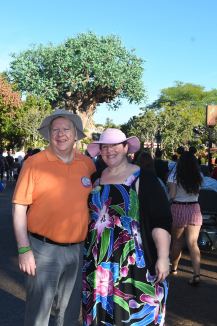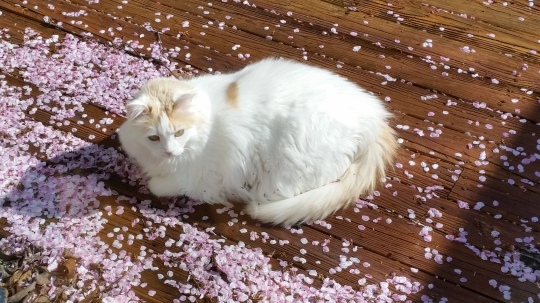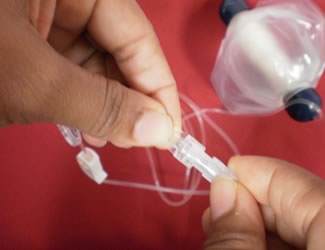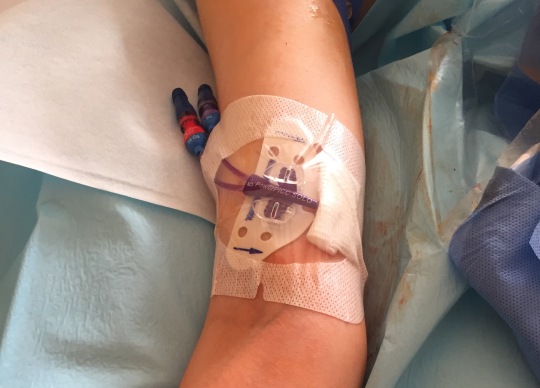I leave notes to myself. I have an untidy stack or random bits of paper that live with my pen next to my keyboard.
This blog has always been about my health, but after all the adventures of the last year, I am completely uninterested in talking about my health in the way I have. One of my many notes is about ideas for changing the focus and things I’d rather be talking about.
Life in lockdown is not on my notes. I read something in passing on social media yesterday encouraging people to keep a journal about our experiences as we go through this crises. As I think so many have, I thought “why not, I don’t have anything better to do.”
That isn’t entirely true. Unlike so very many people, our lives haven’t been much disrupted by quarantine. We are both introverts. We both already have home offices. Our employment is stable. Beloved no longer goes out for lunches, and I’m not making my daily trip to the gym. On the surface, there’s really nothing to see. <cue maniacal laughter>
We were early adopters of social distancing. As things started to look bad in Italy and the news was just starting to be slightly alarmist, we decided Beloved would work from home for a while to avoid riding the metro to work every day. No sense getting that much exposure. The timing was good since Wednesday he was taking me to have a root canal. Always fun. I think that day will always be the turning point in my mind. The last day of old normal.
It all shifted really fast the next week. Monday was the day they closed the rec center for two weeks. I called my dentist and made an appointment for my post root canal permanent filling. By Wednesday, they had called me back. They had gone to emergency visits only. We hoped things were only temporary and we’d still be able to take our scheduled vacation at the end of the month.
I live in Virginia, but we live in what is locally referred to as the DMV, which is the place where DC, Virginia, and Maryland all converge. This means our local news station covers all 3. On March 3 when Maryland governor Hogan declared a state of emergency after a few cases of covid-19 in one church, there was definitely a feeling that it might have been a little excessive. On March 12 when he announced the closure of all Maryland schools for two weeks, it was a complete shock, and more importantly, that is when all the local dominoes started to fall. DC and Northern VA schools quickly started to follow. And then the panic started.
I usually do my grocery shopping on Thursdays. On Thursday the 12th it was shopping as usual and I picked up a few extra things. I remember it seemed unusually busy. I distinctly remember mentioning to a friend that people were insane and we did not need to shop for the Zombie Apocalypse. When I came back for a quick mid-week shop on Tuesday, I was shocked and horrified. I have never, ever seen grocery stores with so many empty shelves. I have never, ever seen the entire toilet paper section down to just a few rolls here and there. I know this is a not entirely foreign idea to those who live in areas prone to hurricanes. I managed to miss any big ones when I lived in Texas. I have never personally experienced it before.
Those empty shelves disturbed me at a very visceral level I didn’t expect, and I didn’t really understand. The panic was unexpected (to me) and unnecessary. The empty shelves caused the panic to escalate. In some ways, that first post panic trip to the store is what changed the face of the world forever for me. It was very much outside my admittedly privileged life. I’ve lived in a world where I didn’t have money for the groceries I wanted, where I mooched a few meals off friends so I could stretch my budget through a lean time. But I have never had to live in a world where there weren’t groceries to buy.
Honestly, I can’t really give any details about the next 2 weeks. Every day was a flood of bad news. Every day caused more discussion about politics than our house normally sees in a week, even in an election year. I was angry enough about government response to write an article about it. Every day we watched the numbers from Italy become more and more dire. Every day I ate comfort carbs and completely derailed my normal Weight Watchers lifestyle. Every day I felt paralyzed and a small corner of my brain kept asking me what the heck was going on.
A friend of mine posted this most excellent article that helped me make sense of what I was feeling. I had never heard of ‘anticipatory grief’ before, but that was exactly where I was.
Anticipatory grief is that feeling we get about what the future holds when we’re uncertain. Usually it centers on death… Anticipatory grief is also more broadly imagined futures. There is a storm coming. There’s something bad out there. With a virus, this kind of grief is so confusing for people. Our primitive mind knows something bad is happening, but you can’t see it. This breaks our sense of safety. We’re feeling that loss of safety.
That’s it. That’s where I was.
I’m pleased to say that Monday I finally started to get a grip. I figured out an alternate plan of exercise that I can do while I’m still building strength after years of disability. I’ve yanked myself back on to the proper eating habits.
And I’ve started writing a lot more, because that is how writers make sense of things. I don’t expect it will be smooth sailing. Most of my family is in the state of New York where things are currently completely out of control. I live in another major urban center. The real shock wave hasn’t even hit yet and the numbers are climbing every day. All we can do is ride the wave and do the best we can.
 I went to Disney World. That was a little too soon in my healing journey and I wound up with enormous blisters on my feet. I also had an amazing time. I had a scooter in each of the parks, but just getting too and from the parks had me doing more walking than I’d done in at least 5 years. It was fun and exciting. And I could.
I went to Disney World. That was a little too soon in my healing journey and I wound up with enormous blisters on my feet. I also had an amazing time. I had a scooter in each of the parks, but just getting too and from the parks had me doing more walking than I’d done in at least 5 years. It was fun and exciting. And I could.

